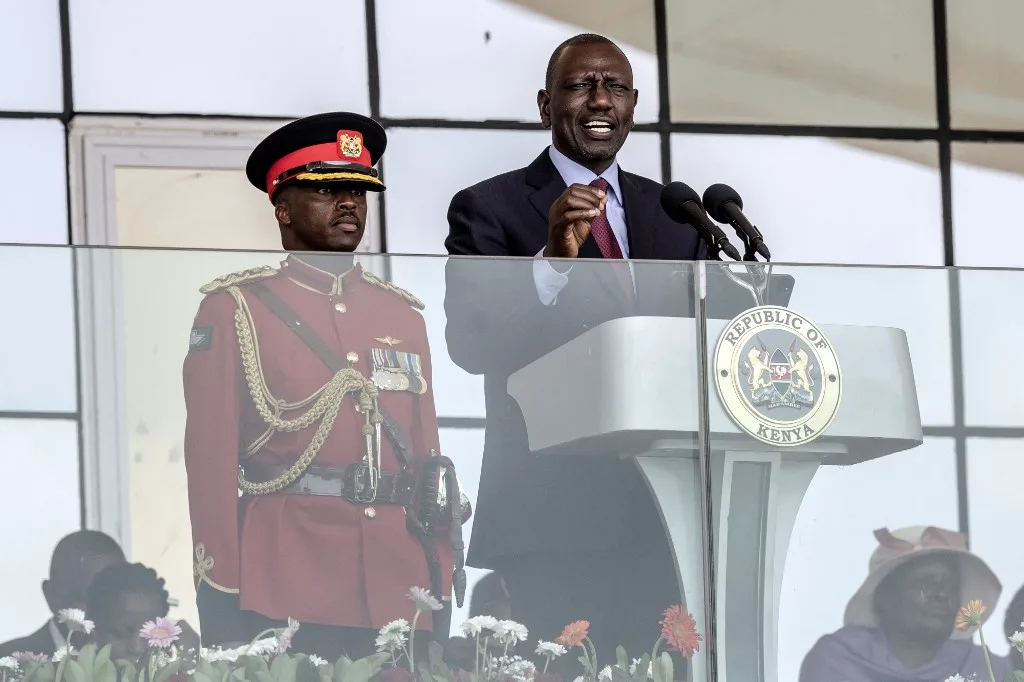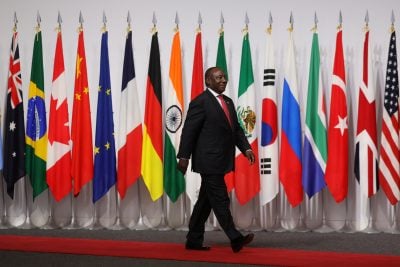The International Monetary Fund (IMF) executive board has approved the seventh and eighth reviews of Kenya’s program loan, unlocking $606m in fresh funding.
This latest disbursement is seen as crucial after deadly protests against new tax proposals in June and July disrupted funding discussions between authorities and the IMF, worsening liquidity challenges for a government already grappling with high debt service costs.
In return for the support, Kenya’s government has pledged to expand efforts to reduce its fiscal deficit and enhance domestic resource mobilisation, suggesting that it will again move to increase taxation. It has also indicated that it will reduce its reliance on borrowing by leveraging public-private-partnerships (PPPs) and implementing a series of spending cuts to boost efficiency in the public sector.
However, the IMF cautions in its latest staff report for Kenya that while austerity measures are necessary, they must be carefully targeted to avoid adversely impacting priority sectors such as education and health. It warns that cuts in these areas could hinder long-term economic growth and human capital development. Additionally, the IMF advised against reducing funding for the Kenya Revenue Authority (KRA) – so as not to impact its capacity to implement tax reforms.
Resilient economy
“Kenya’s economy remains resilient, with growth above the regional average, inflation decelerating, and external inflows supporting the shilling and a buildup of external buffers, despite a difficult socio-economic environment,” said IMF First Deputy managing director Gita Gopinath.
Despite these positive indicators, she struck a cautionary tone, arguing that renewed revenue mobilisation efforts were needed to make up for the shortfall in revenues after new tax proposals were abandoned following the protests earlier in the year.
“Performance since the last reviews of these arrangements has weakened. While accumulation of foreign exchange reserves and inflation were better than expected, the fiscal performance fell significantly short of the targets,” she said.
Before it disburses a tranche of an agreed financing package, the IMF requires regular reviews of economic reform programs to ensure borrowing countries have met the conditions they signed up to.
Government officials have indicated that Kenya will seek another program with the IMF when its current $3.6bn program ends next April. Kenya entered into a four-year loan agreement with the global lender in 2021, expanding this financing in May last year to support climate change initiatives.
A measured approach
According to Churchill Ogutu, an economist at IC Asset Managers, the IMF’s renewed support for Kenya following delays in disbursement will be viewed “positively” by investors. “There was some concern that the IMF programme may go off track,” he tells African Business.
“For the government, they will have to continue the reform agenda in the remaining five months until the programme comes to an end,” he said.
“There are some green shoots from a stable Kenyan shilling and declining inflation which the government can piggyback on as it introduces some of the fiscal reforms.”
However, he cautioned that economic reform measures like increased taxes and spending cuts were likely to face significant public resistance.
“The economic backdrop is quite challenging from a public finance perspective, and I think that the government needs to take a measured approach in resolving the issue.”
New bills to expand tax base
This week, Kenya’s Treasury introduced two new bills in Parliament aimed at amending the country’s tax and public finance laws, in line with commitments made in its program with the IMF. If passed, the proposed amendments are expected to net approximately Sh162.49bn ($1.25bn) in additional revenue.
Key proposals include expanding the definition of the digital marketplace to encompass food delivery, ride-hailing services, and freelance work, as well as the introduction of withholding tax on goods supplied to public entities.
Overall, the slew of amendments contained in the two bills are designed to increase tax compliance and broaden the tax base. As Kenyan lawmakers debate these bills in the coming weeks, the focus now shifts to whether the authorities can successfully increase domestic revenues while averting the deadly protests and public unrest that derailed similar plans earlier in the year.
Want to continue reading? Subscribe today.
You've read all your free articles for this month! Subscribe now to enjoy full access to our content.
Digital Monthly
£8.00 / month
Receive full unlimited access to our articles, opinions, podcasts and more.
Digital Yearly
£70.00 / year
Our best value offer - save £26 and gain access to all of our digital content for an entire year!

 Sign in with Google
Sign in with Google 



